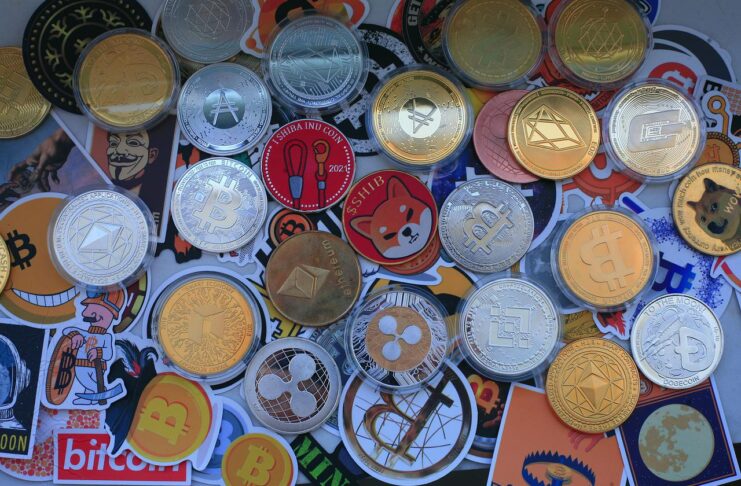The world of cryptocurrency, NFTs, and other blockchain-based assets has enough potential to excite any investor.
Before you plunge in and start multiplying your funds, it’s important to understand the security challenges you need to overcome.
This is the only way to dominate the different exchanges, protect your assets, and keep your revenue as high as possible.
In this article, we’ll discuss the safety of investing in cryptocurrencies. We’ll also provide a security checklist for new investors to keep their assets safe at all times.
Let’s go!
Is Cryptocurrency Trading a Safe Practice?
In short, the answer is yes, as long as you take the right precautions.
Every investment comes with a certain level of risk. The cryptocurrency industry is no exception as it faces tough challenges, like:
- Volatility;
- Lack of regulation;
- A large number of scams.
The good news is that blockchain technology provides a security net that creates a safe environment.
How do they do it?
Blockchains work like public databases that record all cryptocurrency transactions. This creates a transparent system that ensures the validity of every transaction.
But, while the structure of blockchain technology is flawless, it doesn’t exist in a vacuum. There are many external variables that can compromise security, like an unsafe internet connection.
For this reason, you need to take additional steps to minimize your chances of experiencing a breach.
What are these steps? Let’s see.
A Beginner’s Crypto Security Checklist
Let’s go over 5 steps you should take to increase security while trading cryptocurrencies.
1. Keep an Eye Out for Phishing Emails and Messages
In December 2021 alone, there were more than 300,000 phishing attacks on a global scale.
Phishing has become one of the most common forms of cyberattacks because it can be used to extract all types of passwords. This includes cryptocurrency passwords as well as private keys.
The problem is that phishing scams are more sophisticated than ever before.
For this reason, you need to analyze every single message you receive and verify it’s coming from your legitimate cryptocurrency wallets and exchanges.
If not, you may end up clicking on a link sent by a fraudster.
2. Follow Best Practices When Storing Your Private Key
When you set up a cryptocurrency wallet, you receive a public key and a private key. As the name suggests, it’s safe to share the public key with others because it allows you to receive money.
But what about the private key?
In short, you need to keep it safe and avoid sharing it with anyone. Think about it as the key that grants access to the contents of your digital vault.
It’s also a good idea to store a digital and a physical copy of your key in a safe place that only you can access.
For instance, you can invest in a dedicated physical or hardware crypto wallet. These may not be as practical as digital wallets. But, hardware versions provide the safest alternative for holding large quantities of crypto for long periods.
Digital wallets are the best online option for storing a private key. There are dozens of great providers, many of which offer their services for free.
Just remember to choose a company that has a good reputation, uses powerful encryption protocols, and features an intuitive user interface.
3. Leverage Whitelists in Your Security System
Whitelists often serve as the last line of defense against fraud.
In most cases, this feature is listed under “Whitelist” or “Whitelisting”. But if you can’t seem to locate it, you can contact your provider, and they’ll help you to find it.
When this feature is activated, your wallet is only able to send funds to wallets that have been previously whitelisted. If available in your wallet, you can activate this feature in the settings area.
So, if a hacker breaks into your account, this person wouldn’t be able to send money to unknown wallets.
The only setback is that you’ll need to complete the sign-in process, including the 2FA part, every time you want to add a new wallet to the whitelist. But this adds an extra level of security that’s hard to breach.
4. Protect Your Connection from Snoopers Using a VPN
As we mentioned earlier, the internet connection you use can also compromise your cryptocurrency credentials.
For example, a hacker can intercept and decipher the information you send and receive through an insecure network.
Not only this, but networks with little protection may unknowingly help distribute worms and other forms of malware.
You can avoid any snooping eyes and prevent criminals from intercepting your data by using a VPN.
There are a few different providers to choose from. So, you need to hire a crypto VPN that allows you to connect to your favorite exchanges while providing the best security features. For example:
- Auto-connection to the internet;
- Robust encryption;
- A kill switch;
- Connection through multiple VPNs;
- The ability to specify which apps use the encrypted connection.
These features can help you create a practical and safe process that you can follow whenever you trade crypto.
5. Use a Combination of Hot and Cold Wallets
Crypto wallets can be divided into hot and cold.
Hot wallets consist of platforms that are constantly connected to the internet, like an app on your phone. Cold wallets are digital vaults that exist offline, for example, in a USB drive.
Rather than choosing one or the other, the recommended practice is to use a combination of both. Every person is different, so you need to analyze your circumstances, compare the options, and select the wallets that best match your requirements.
This will ensure that the currencies you’re holding won’t be compromised and that you’re still able to transfer funds easily.
Conclusion
There is no doubt that investing in cryptocurrency is an exciting, potentially profitable venture.
We hope that the tips above help you create a safe environment and protect your assets while learning how to make revenue from this practice.
DisClamier: This content is informational and should not be considered financial advice. The views expressed in this article may include the author's personal opinions and do not reflect The Crypto Basic opinion. Readers are encouraged to do thorough research before making any investment decisions. The Crypto Basic is not responsible for any financial losses.



